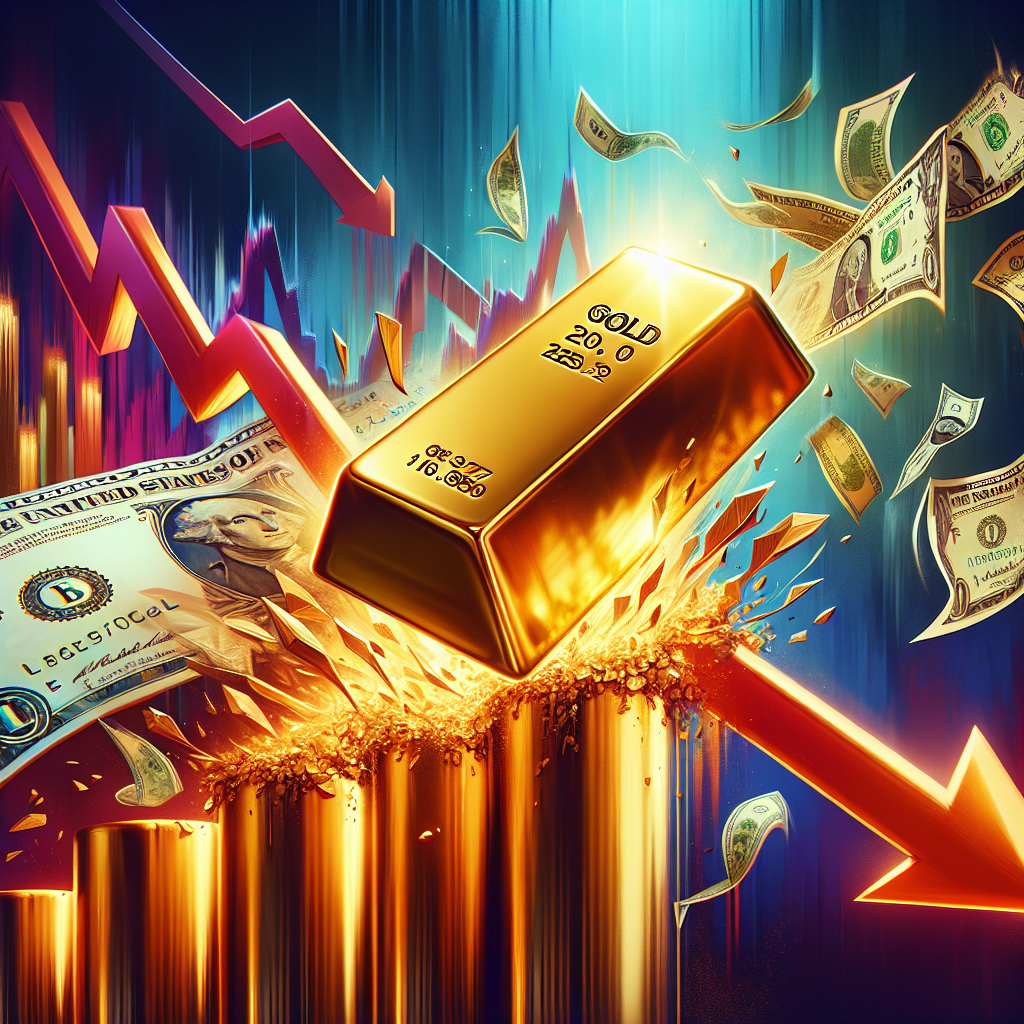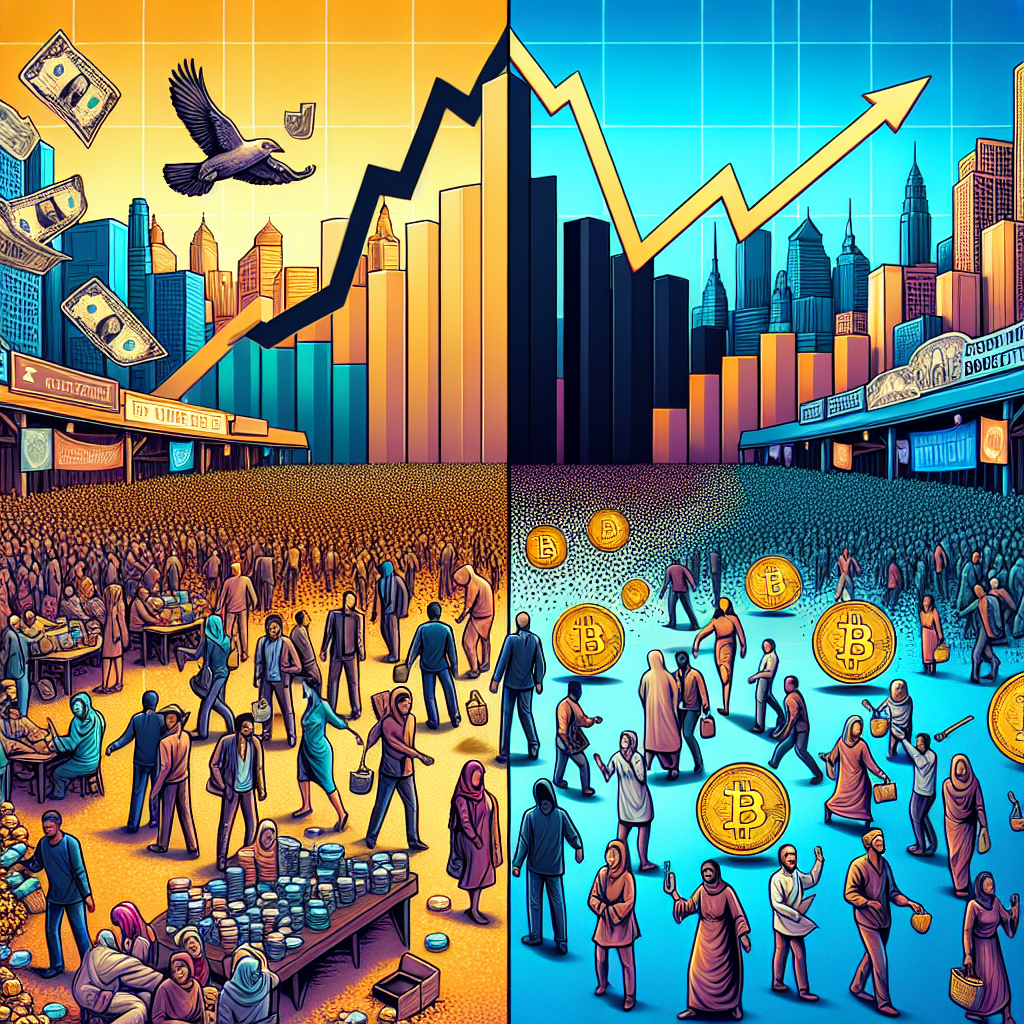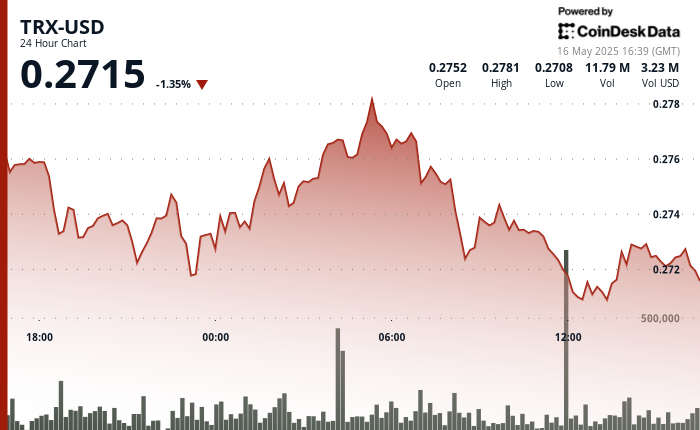U.S. Consumer Sentiment Craters in First Post-Tariff Read, but Crypto Is Holding Up


U.S. Consumer Sentiment Craters in First Post-Tariff Read, but Crypto Is Holding Up
Gold soared to a new record high as the selloff in the U.S. dollar and long-term Treasuries continued in force on Friday.
- U.S.-China trade tensions and inflation concerns are causing turmoil in traditional markets.
- Consumer sentiment in the U.S. has dropped significantly, with inflation expectations reaching their highest since 1981, according to Friday's University of Michigan survey.
- Investors are selling U.S. government bonds and dollars, while gold and cryptocurrencies are seeing gains. Bitcoin was up 4% at $82,000, while altcoin majors SOL and AVAX advanced more.
Following the first post-tariff report, U.S. consumer sentiment took a nosedive, while the world of cryptocurrency remained resilient in the face of economic turbulence.
As traditional markets reel from escalating U.S.-China trade tensions and mounting inflation fears, the latest University of Michigan survey revealed a stark decline in consumer confidence in the American economy. Inflation expectations have surged to their highest level since 1981, as highlighted by Friday's data.
In response, investors are swiftly shedding U.S. government bonds and dollars, seeking refuge in gold and cryptocurrencies which are experiencing notable upticks. Bitcoin showed a 4% increase reaching $82,000, with major altcoins like SOL and AVAX also making gains.

The market upheaval is evident with long-term U.S. Treasury yields surging over 50 basis points within a week to cross 4.55%. Simultaneously, the dollar index plummeted below 100 to hit a three-year low while gold reached an all-time high at $3,240 per ounce.
Signal or noise?
Despite these shifts reverberating across global markets, opinions diverge on whether these disturbances signal impending economic woes or are merely short-term fluctuations. Analyst Noelle Achison pointed out that volatility primarily impacted safe-haven assets like the U.S. dollar and government bonds rather than other refuge options. Meanwhile, investor Bill Ackmann attributed these rapid changes to leveraged market participants being squeezed out of positions rather than underlying economic fundamentals.
In this uncertain landscape where technical factors seem to be steering market movements more than policy changes' actual impacts, it remains to be seen how these recent developments will shape the future economic trajectory in the United States and beyond.

“I believe that it is much more likely that recent sharp moves in these asset classes is due to highly leveraged market participants being forced out of positions than due to fundamentals,” said billionaire investor Bill Ackmann in a post on X.
“Technical factors are driving the dramatic market moves," Ackman continued. "As a result, markets have become increasingly unreliable as short-term indicators of the impact of policy changes."



